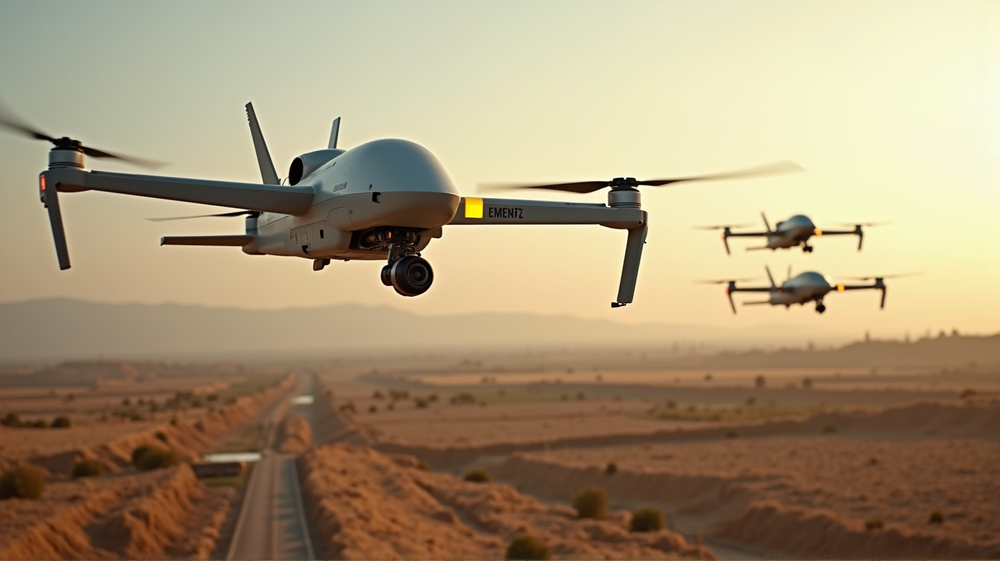Israeli drones shocked the world earlier this week when they dropped grenades near UN peacekeepers in south Lebanon. This unexpected aggression by Israel has been labeled one of the “most serious attacks” on UN personnel since a significant ceasefire agreement was reached last November. According to The Guardian, this incident took place while peacekeepers were engaged in essential roadwork to ensure safe passage to one of their key positions along the Israeli border.
A Close Call for Peacekeepers
The peacekeepers faced a potentially deadly situation as four grenades were dropped, one just 20 meters from them. Responding swiftly, UN forces halted their work, prioritizing the safety of their team members above all else. This incident underscores the volatile conditions under which peacekeepers operate, despite international laws prohibiting such attacks. Unifil has been vocal about its condemnation, reminding both the Israeli military and the international community of their responsibility to guarantee UN forces’ safety.
Historical Context and Ongoing Conflict
It was not the first time Unifil has come under fire; such episodes have been recurrent during Israel-Hezbollah conflicts. The peacekeeping force, established initially to oversee the withdrawal of Israeli troops from Lebanon, has seen a complex evolution in its responsibilities. It now grapples with the delicate balance of maintaining peace and being accused of partiality by both Israel and Hezbollah.
Challenges and Future of the Peacekeeping Mission
With the UN Security Council recently decreeing the winding down of Unifil’s mission by the end of next year, there are growing uncertainties regarding the role and presence of international peacekeepers in Lebanon. The mission’s termination is seen by many as bowing to external pressures, particularly from the US and Israel, who argue that empowering the Lebanese Army to handle its internal security will strengthen national sovereignty.
The Broader Impact
The continued aggression from Israel, juxtaposed with intermittent hostility from Hezbollah, poses significant challenges for peace in the region. This latest incident reaffirms Lebanon’s complex geopolitical landscape, where dreams of peace frequently encounter the hard realities of prolonged conflict.
While the Lebanese government continues its efforts to enhance its military capabilities and disarm non-state actors like Hezbollah, the specter of conflict looms large. The international community watches closely, hoping for a resolution that will satisfy all parties involved and bring lasting peace to this troubled border.
This incident underlines the need for diplomatic dialogue and cautious engagement, acknowledging each stakeholder’s concerns while striving for a cease in hostilities. Ultimately, hope rests on wording a path that respects sovereignty and fosters cooperation, heralding a new era of stability in the Middle East.












